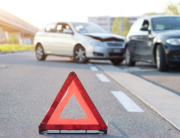If you have been in a wreck and you are without a vehicle while the insurance claims adjuster is deciding whether to declare your car a total loss or your vehicle is in the repair shop, you might wonder if you should get a rental car so you can get to work and carry on with daily life. The cost of a rental car can quickly add up, so it is helpful to know who will have to pay for the rental.
When you do not have a car to drive because of an accident, the attorneys at the Montero Law Center can help you get a rental car and pursue reimbursement from the at-fault driver’s insurance company. Call us today at 954-767-6500 to discuss your claim with a lawyer.
Three factors determine who will have to pay for your rental car:
- Who was at fault in the wreck.
- What the other driver’s policy covers.
- The coverage in your auto insurance policy.
If the other driver was at fault, the expense of renting a car while yours is unavailable is one of your losses from the accident. You can include this cost in your liability claim against the at-fault driver. Your damages claim can also include your medical bills, lost wages, pain and suffering, and other impacts on your life the crash caused. The downside of using this approach is that you may have to pay for the rental out-of-pocket and wait for reimbursement at the end of the claim.
Another option is to find out if the at-fault driver’s auto insurance policy includes rental car coverage. Depending on the terms of his policy, the claims adjuster might arrange to have the rental car agency direct bill the other driver’s insurance company. This approach can be a better option than waiting to include the expense in your damages claim because it can help you avoid an out-of-pocket cost.
If your auto insurance policy includes rental car coverage, your policy might pay the expense. Many insurance companies have direct billing arrangements with car rental agencies so you will not have to pay out of pocket and wait for your insurance to reimburse you. You should check your policy to see what coverage you have.
According to the Florida Bar’s Consumer Pamphlet on Automobile Insurance, rental car reimbursement is an optional coverage; Florida law does not require you to purchase it. You must carry at least $10,000 of personal injury protection (PIP) and $10,000 of property damage coverage to satisfy state insurance requirements for all motor vehicles with four or more wheels. Other types of optional coverage include uninsured motorist, comprehensive, collision, medical payments, towing, and accidental death and dismemberment.
If you do rent a car while your damaged car is out of commission, first talk with your auto insurance company to see if you need to purchase the car rental agency’s collision damage coverage. If your auto policy covers you when you are driving a rental car, then you might not need the agency’s coverage. Also, some credit cards automatically provide collision coverage if you pay for the rental with your credit card. Check with your insurance and credit card companies to discover your options to save money on the rental. Learn about your rights in the event of a wreck in a rental car.
If you suffered injuries in an accident, contact the Montero Law Center for help with your claim. To get your free consultation, call us today at 954-767-6500.
 English
English  Español
Español 




